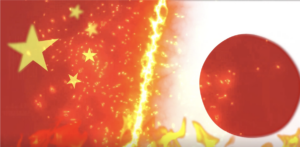Japan has made a significant move by adding advanced semiconductor-manufacturing equipment to its export control list, in line with U.S. efforts to restrict chip technology from reaching China. The move was made official yesterday. This action, encompassing twenty-three items, includes crucial equipment for circuit pattern formation and chip testing. Industry experts predict that this decision will impede China’s access to high-tech chipmaking tools, with potential repercussions from Beijing. The Nikkei is reporting that the newly listed equipment also covers extreme ultraviolet (EUV) lithography machines. This development follows the U.S.’s tightening of export controls towards China in key areas like supercomputers and artificial intelligence, due to possible military applications. Japan’s sanctions are anticipated to make producing advanced semiconductor devices exceedingly difficult for China in the foreseeable future.
| Company | Main Product/Service | Market Presence |
|---|---|---|
| Tokyo Electron | Coater/Developer for EUV Technology | Dominates the market for mass-produced tools |
| Lasertec | Inspection Equipment | Greatly benefiting from EUV development |
| NuFlare Technology | Electron Beam Devices for Photomask Tracing | Competing with an alliance between JEOL and IMS |
| Gigaphoton | Light Sources for Exposure Machines | Working on a comeback to regain market share |
Japan is a leading source of semiconductor-manufacturing equipment for China, accounting for approximately one-third of Chinese imports in this segment in 2022. This move will increase reporting requirements to Japan’s Ministry of Economy, Trade and Industry for suppliers, although a simpler application process is allowed for 42 countries and territories. Despite facing restrictions at the high end, Japanese suppliers still have growth opportunities in China for non-cutting-edge technologies. Exports of equipment for producing older legacy chips remain strong, as China has escalated their production in response to U.S. restrictions.
Further, potential responses from China is a major concern for Japan. China has previously imposed restrictions on U.S.-based Micron Technology’s chips in vital infrastructure, seen as a retaliatory action against the U.S. Starting in August, China will require export licenses for gallium and germanium compounds, essential components in the semiconductor and electronics industries. This could impact Japan’s strong position in gallium nitride semiconductor materials, potentially necessitating a search for alternative supply sources. China has also hinted at further responses, raising additional uncertainties for Japan’s semiconductor industry in the context of geopolitical tensions.

